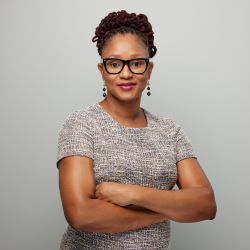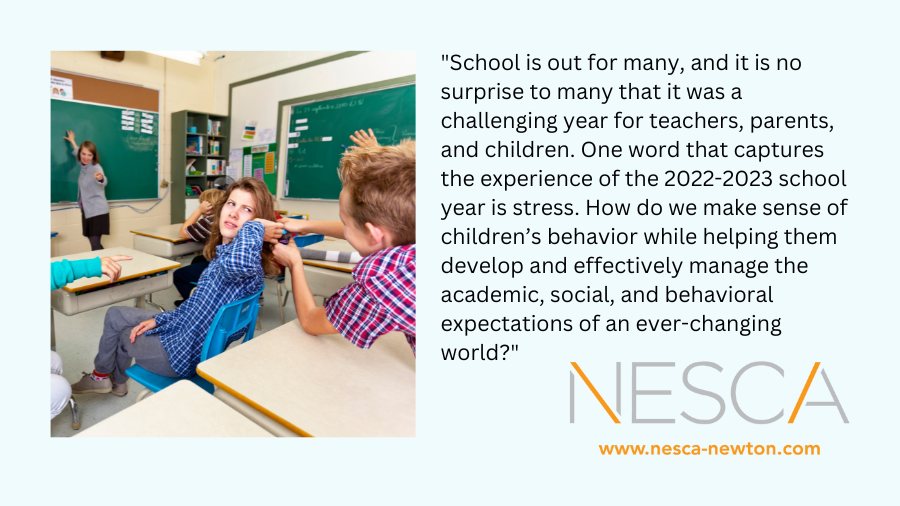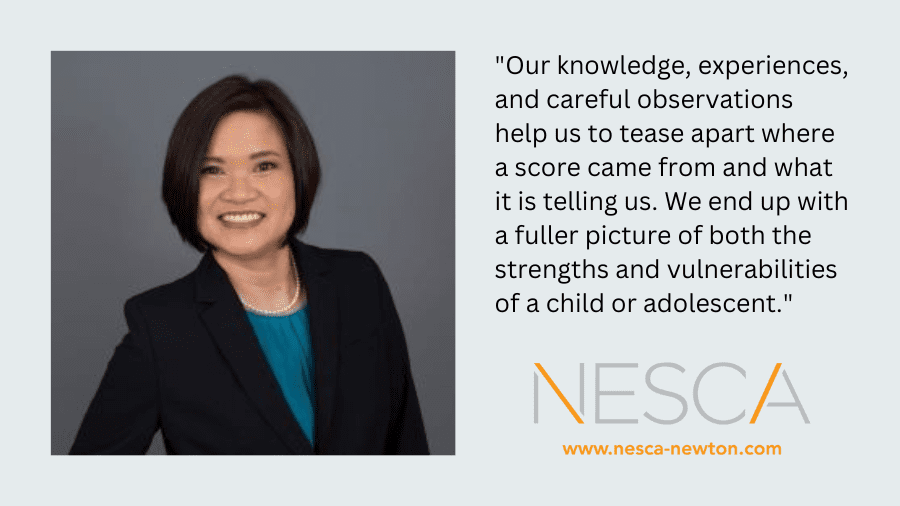
 By: Jane Hauser
By: Jane Hauser
Director of Marketing & Outreach, NESCA
NESCA recently announced that it is now offering transition services and coaching services in the Greater Burlington, Vermont region. Learn more about what is being offered by our Vermont-based staff from my interview with Vermont-based Program Manager Dr. Lyndsay Wood, OTD, OTR/L.
Why did NESCA expand to Vermont and how can clients benefit from your services?
NESCA is expanding our in-person services to Vermont to widen the breadth of transition services offered within the state. Through research and conversations with local professionals and parents, we recognized that there is an opportunity to bolster local transition services for students to meet their personal postsecondary goals and to live fulfilling lives post-high school. Through our variety of services, our goal is to empower teens and young adults to create their own vision for the future and build the skills necessary to achieve it. This is important for students currently in public middle and high schools as well as local college students and young adults new to the world of work. At NESCA, we take a relational approach with to build a strong foundational relationship between ourselves and the clients we support. Our priority to is create a safe, inclusive, and welcoming environment within our sessions.
What services do you offer?
At this time, NESCA’s Vermont-based practice will offer transition assessment, real-life skills coaching, executive function coaching, transition consultation, and functional community-based occupational therapy evaluations. All Vermont-based services are delivered by experienced occupational therapists and transition specialists with expertise in developing functional and relevant goals. For more information on each of these services, please visit our website and view our Post-Secondary Transition Services and Coaching Services links: https://nesca-newton.com/our-services/. Many folks are unfamiliar with transition assessments, so to learn more, see the following blog written by our Director of Transition Services Kelley Challen, Ed.M., CAS: https://nesca-newton.com/transition-assessment-what-is-it-anyway-how-is-it-different-from-neuropsychological-evaluation/.
What type of client does NESCA serve in Vermont?
NESCA’s Vermont-based practice primarily works with teens and young adults with autism spectrum disorders (ASD), attention-deficit/hyperactivity disorder (ADHD), mental health diagnoses, specific learning disabilities, executive function (EF) challenges, and other complex cases based on the expertise of our providers. A specialty at NESCA is working with clients who have multiple diagnoses or who don’t fit neatly into a singular diagnostic box.
Where are you in Vermont? Are services in-person or remote?
Coaching services will be offered in the home, school, or community within the greater Burlington area. Services can also be delivered remotely if deemed appropriate for the client. Transition assessment is typically conducted within the client’s school setting.
What is different about what NESCA offers in Vermont compared to other organizations or services already available?
NESCA will be a premier independent transition assessment provider in Vermont. We are happy to collaborate with school districts or work with families directly. Additionally, we are unique in providing one-on-one occupational therapy services that specifically address life skills within a client’s home and community setting. Working within the home and community, and not only within the school setting, is incredibly important for the generalization of life skills as well as social skills, functional academic skills, and executive functioning skills.
Does insurance cover your services in Vermont?
NESCA is primarily a private pay service provider. Some families are able to obtain some coverage or reimbursement for our real-life skills coaching service with their health insurance, but it is vital that folks first check with their insurance provider to ensure our services would be covered.
How do people get more information about NESCA’s Vermont services?
To learn more about NESCA, please visit our website at: https://nesca-newton.com/.
If you would like to fill out an intake form, follow this link: https://nesca-newton.com/intake.
If you have more specific questions, do not hesitate to call: 617-658-9818
Additionally, you can contact our Vermont-based Program Manager Dr. Lyndsay Wood, OTD, OTR/L, directly at: lwood@nesca-newton.com
About Lyndsay Wood, OTD, OTR/L
Lyndsay Wood, OTD, OTR/L, is an occupational therapist who focuses on helping students and young adults with disabilities to build meaningful skills in order to reach their goals. She has spent the majority of her career working in a private school for students with ASD. She has also spent some time working in an inpatient mental health setting. Lyndsay uses occupation-based interventions and strategies to develop life skills, executive functioning, and emotional regulation. While completely her doctoral degree at MGH Institute of Health Professions, Lyndsay worked with the Boston Center for Independent Living to evaluate transition age services. She uses the results from her research to deliver services in a way that is most beneficial for clients. Specifically, she focuses on hands-on, occupation-based learning that is tailored the client’s goals and interests.
meaningful skills in order to reach their goals. She has spent the majority of her career working in a private school for students with ASD. She has also spent some time working in an inpatient mental health setting. Lyndsay uses occupation-based interventions and strategies to develop life skills, executive functioning, and emotional regulation. While completely her doctoral degree at MGH Institute of Health Professions, Lyndsay worked with the Boston Center for Independent Living to evaluate transition age services. She uses the results from her research to deliver services in a way that is most beneficial for clients. Specifically, she focuses on hands-on, occupation-based learning that is tailored the client’s goals and interests.
To book coaching and transition services at NESCA, complete NESCA’s online intake form.
NESCA is a pediatric neuropsychology practice and integrative treatment center with offices in Newton and Plainville, Massachusetts, Londonderry, New Hampshire, and Burlington, Vermont, serving clients from preschool through young adulthood and their families. For more information, please email info@nesca-newton.com or call 617-658-9800.







 from elementary school through young adulthood. In addition to direct client work, Ms. Badamo provides consultation and support to parents and families in order to help change dynamics within the household and/or support the special education processes for students struggling with executive dysfunction. She also provides expert consultation to educators, special educators and related professionals.
from elementary school through young adulthood. In addition to direct client work, Ms. Badamo provides consultation and support to parents and families in order to help change dynamics within the household and/or support the special education processes for students struggling with executive dysfunction. She also provides expert consultation to educators, special educators and related professionals.


 By:
By: 




 before starting her doctorate. In this role, she developed extensive expertise and aptitude for working with individuals and groups struggling with a wide range of emotional and learning challenges.
before starting her doctorate. In this role, she developed extensive expertise and aptitude for working with individuals and groups struggling with a wide range of emotional and learning challenges.
 staff at Johns Hopkins University and trained at the University of California, Los Angeles (UCLA). She provides comprehensive neuropsychological evaluations of children, adolescents, and young adults who have learning, behavioral, and socio-emotional challenges. Her areas of expertise include Autism Spectrum Disorder and other conditions that usually co-occur with this diagnosis; Attention-Deficit/Hyperactivity Disorder; Dyslexia and other Specific Learning Disabilities; and Anxiety/Depression. She thinks that the best part of being a pediatric neuropsychologist is helping change the trajectory of children’s lives.
staff at Johns Hopkins University and trained at the University of California, Los Angeles (UCLA). She provides comprehensive neuropsychological evaluations of children, adolescents, and young adults who have learning, behavioral, and socio-emotional challenges. Her areas of expertise include Autism Spectrum Disorder and other conditions that usually co-occur with this diagnosis; Attention-Deficit/Hyperactivity Disorder; Dyslexia and other Specific Learning Disabilities; and Anxiety/Depression. She thinks that the best part of being a pediatric neuropsychologist is helping change the trajectory of children’s lives.


Connect with Us